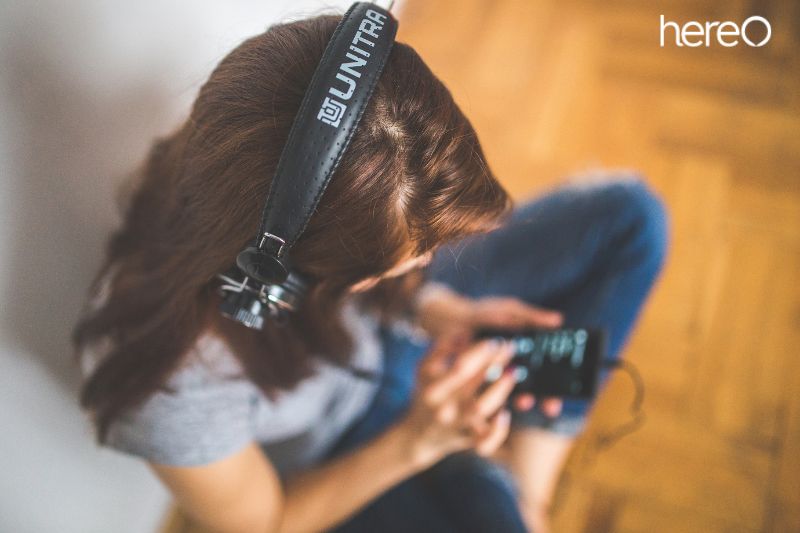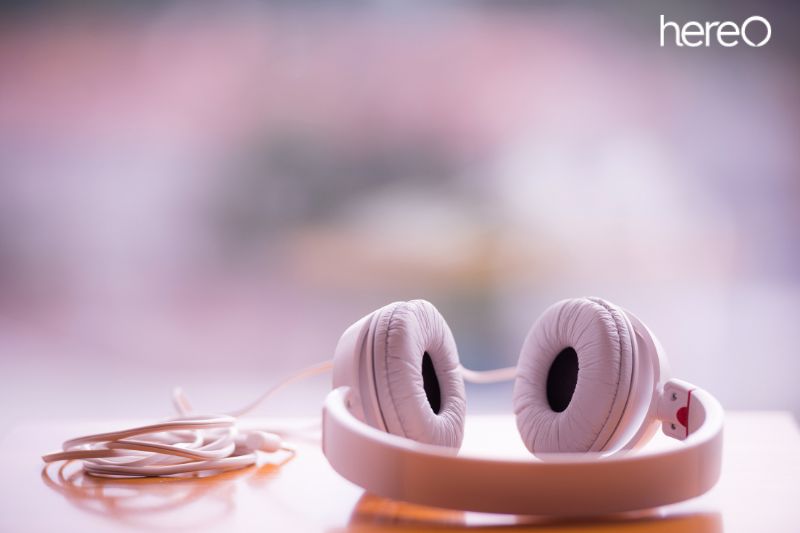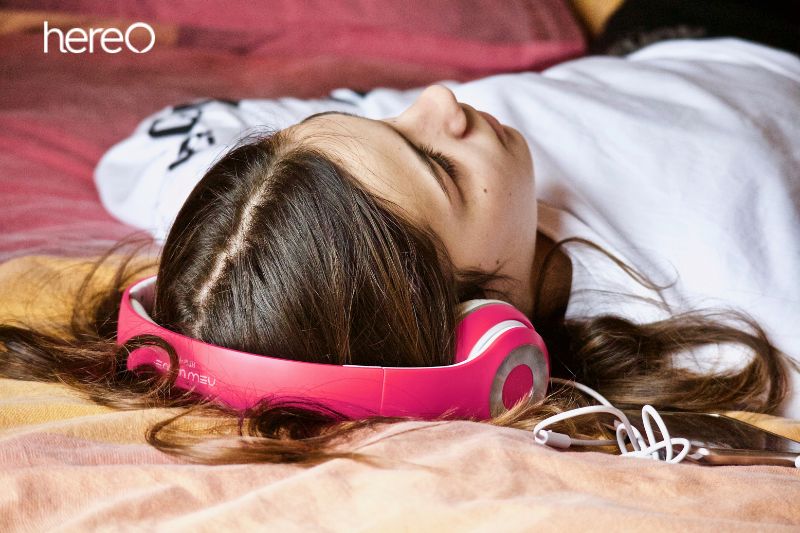Headphones are extremely useful gadgets for people who love listening to music but don’t want to bother other people around them. Many music lovers can listen to music on headphones for hours and have reported to have tinnitus. That raises the question: can headphones cause tinnitus?
Contents
What is Tinnitus?

Tinnitus is a common problem that affects about 15-20% of people, with older adults being especially prone to its effects.
It is described as a ringing, buzzing, hissing, clicking, roaring or other sound that is heard in either one or both ears, with no external source of the noise being present.
Common causes of tinnitus include age-related hearing loss, ear and sinus infections, diseases of the heart or blood vessels, Ménière’s disease, brain tumors, hormonal changes in women, and thyroid abnormalities.
The symptoms of tinnitus can vary from person to person, but it is often described as a ringing in the ears. The sound may be soft or loud, high pitched or low pitched and can last for several minutes or even hours. In some cases, people may experience tinnitus every day, while in others, they may only experience it occasionally.
How Can Headphones Cause Tinnitus and Hearing Loss

Noise-induced hearing loss (NIHL) is an increasingly common problem among adults, adolescents, and children today due to prolonged exposure to loud sounds.
Though headphones are not necessarily more likely than loudspeakers to cause hearing loss, they can be dangerous when used improperly. Prolonged use of headphones at high volumes can lead to both hearing loss and tinnitus.
The issue is that people, particularly young people, have a propensity to listen to loud music for extended periods of time.
A Swedish study conducted in 2023 found that children who used headphones multiple times per week had worse hearing than those who did not. Similarly, hearing loss is on the rise among adolescents. People with hearing impairment are twice as likely to experience tinnitus than those with normal hearing.
Tinnitus is twice as common in people with hearing loss as it is in people with normal hearing. This study by Oosterloo et al. also supported the notion that, unlike hearing loss, tinnitus is not affected by aging.
These researchers found that getting older does not raise your likelihood of developing tinnitus, presumably because hearing loss happens gradually. Tinnitus, on the other hand, seems to be a more probable side effect when hearing loss occurs rapidly and the brain fails to adjust to the sudden lack of input.
How Does Active Noise Canceling Headphones Affect Tinnitus

How Does Noise Canceling Work?
Noise canceling headphones use microphones to create the anti-noise.
The system is based on microphones that “listen” to the sounds outside and inside of the earphone, an ANC chipset inverting the soundwaves and a speaker inside the earphone canceling the outside sound by the neutralizing soundwaves.
The microphone array records the noise around you to calculate how to cancel it. In order to create anti-noise, headphones must constantly monitor and sample ambient noise using these tiny built-in microphones.
They “listen” to the ambient noise around you, and then the onboard electronics take it from there. As well as your music, the headphones create a sound that is exactly opposite to that sound wave to cancel it out so that all you should hear is the music coming from your headphones—and not anything going on outside.
Can Noise Canceling Headphones Help with Tinnitus
When considering using noise canceling headphones to help with tinnitus, it’s important to remember that they are not a cure-all.
While some people may find temporary relief from using noise canceling headphones, others may perceive their tinnitus to be worse when using the headphones without sound playing. This is because the noise canceling makes everything else sound quieter, which can make the tinnitus more noticeable.
When using noise canceling headphones, it’s important to ensure that the sound level is comfortable and not too loud.
The aim should be to relax, not to completely mask or drown out environmental sound. Additionally, hearing protection should only be used for truly harmful noise levels, such as sporting events or lawn work, and not worn all the time.
This will help to prevent further damage to the auditory system that could potentially exacerbate or cause tinnitus.
Ultimately, tinnitus cannot be reduced by noise canceling headphones, however ambient noise can be greatly reduced by headphones with good noise isolation and cancellation.
With ANC headphones, you may listen at lower volumes while still being protected from outside noise, which lowers your risk of (further) hearing loss and shields you from tinnitus.
What Volume Levels Are Safe

Over 115dB(SPL), or the volume of a rock concert, can be achieved by turning up the headphones’ volume. Hearing loss occurs at that volume in a matter of minutes. Limit the volume and the amount of time you spend listening if you value your hearing and want to prevent tinnitus.
Adults can safely listen to music at volumes up to 80 dB (SPL), but you should still give your ears regular pauses. Remember that prolonged exposure to 89dB(SPL) can result in NIHL that is irreversible.
ASHA recommends no louder than 75dB for children (SPL). You should generally keep listening to one hour each day.
When using over-ear headphones, a general guideline is to keep the level at or below 70%. Using in-ear headphones, often known as earbuds, at 60% volume is advised.
To regulate the maximum volume, you can also utilize your phone’s settings or mobile apps. If you’re looking for new headphones, think about volume-limited models, which normally have an 85dB maximum (SPL).
How To Avoid Hearing Loss and Tinnitus When Using Headphones
It is good to heed these safety advice if you feel you must listen to music using headphones or earbuds:
- Listen to music in small doses.
- Listen to music at a reasonable volume
- Try not to turn up the volume whilst on a train or to drown out background noise
- Use your masker instead
- Take regular breaks
Take breaks since we become accustomed to the noise level when we listen to music for extended periods of time, no matter how loud it is. This can raise the risk of hearing impairment by encouraging us to increase the loudness. Old-fashioned headphones are better at isolating background noise than earbuds, so you’ll be able to keep the volume down if you use them.
FAQs about Can Headphones Cause Tinnitus

Does tinnitus from headphones go away?
When people have tinnitus for a brief period of time after attending a loud concert or listening to headphones or other speakers too loudly, it may occasionally be transient. Even if the buzzing or hissing may stop after a short while, the hair cells in the ear may have sustained long-term harm.
Can headphones worsen tinnitus?
Yes, wearing headphones too often or at unsafe volumes can make your tinnitus worse.
Conclusion
The answer to the question whether headphones can cause tinnitus is yes. Long periods of exposure to loud music through headphones can cause permanent damage to hearing and ringing in the ears.
For those who enjoy listening to music for hours on end, it is important to take breaks and keep the volume at a moderate level. To learn more about how to protect your hearing, visit our website for tips and advice.
HereOfamily hope you enjoy reading this article. Thankyou for reading.
